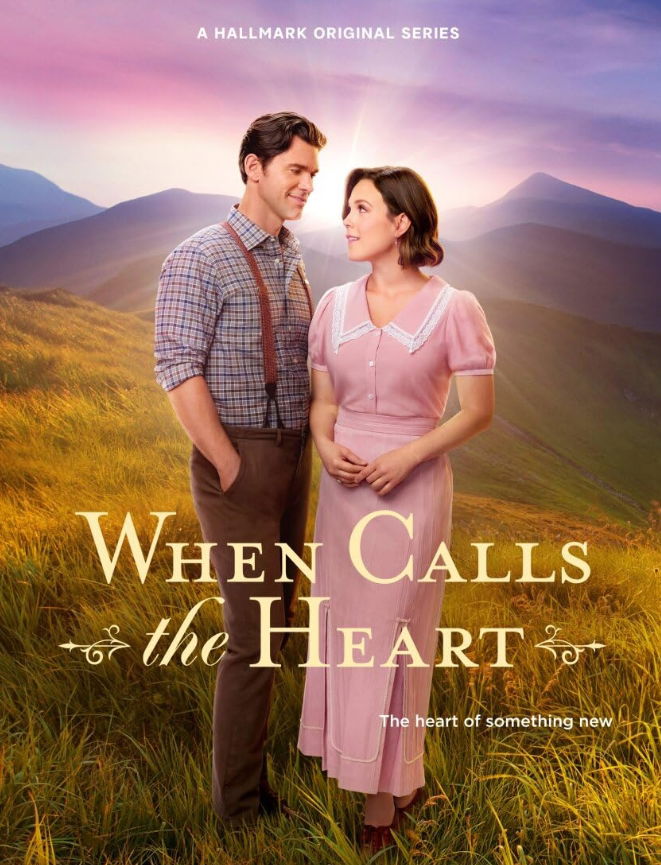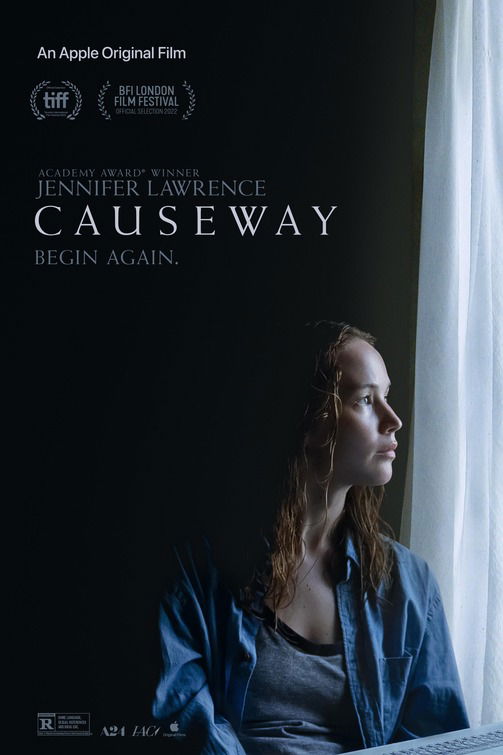“Coping with PTSD and Depression”

| None | Light | Moderate | Heavy | |
|---|---|---|---|---|
| Language | ||||
| Violence | ||||
| Sex | ||||
| Nudity |
What You Need To Know:
CAUSEWAY is about the effects of PTSD and depression and how trauma affects the brain. The drama is captivating, and the acting superb. CAUSEWAY shows how trauma sometimes comes down to the family and setting where you were raised. CAUSEWAY is marred by a strong Romantic, Non-Christian worldview with excessive foul language, substance abuse and a gratuitous homosexual reference. Extreme caution is advised.
Content:
Strong Romantic worldview, with no mention of God or the Bible or any form of religion, states man is essentially good and noble but has been corrupted by civilization, lead female character was doing great until war supposedly “corrupted” her, woman’s male friend was engaged to the love of his life until a car wreck resulted in the loss of his leg and fiancée and her young son, woman and man were happy until their traumas and now they wallow through life without hope for their future, with some pagan elements implying anything goes, two depressed and traumatized friends believe hopelessness is their life now, and all they can do is attempt to move forward, which unfortunately is often accompanied by weed and drinking beer to help them numb their pain, plus female lead tells her male friend she’s a lesbian, but there are no other references to this;
About 24 obscenities (half or so are “f” words), several profanities, and woman vomits because of anxiety;
Some strong violent descriptions include lead female character describes her time during war witnessing men on fire and bombs and death, and man explains how he lost his leg and loved ones in a car wreck with a brutal, vivid description;
No sex scenes but lead female character informs an adult male friend she’s a lesbian but they share a romantic kiss in one scene, though lesbian woman later tells him that was a mistake;
Upper male nudity when man hops into pool, implied nudity when nurse washes woman/s body, and woman her bra and underwear swims in pool;
Heavy drinking, adults drink beer and get drunk and to combat their depression and signs of alcoholism are present, such as man who recalls he was not sober when he had a wreck and killed someone;
Smoking, and adults smoke cigarettes and marijuana to numb their depression and emotional trauma, plus people take prescribed anti-depressants, sometime mixing them with alcohol; Miscellaneous Immortality: Heavy miscellaneous immortally includes graphic, detailed stories of trauma, lead female character recounts her brother’s severe drug addiction (it leads him to a life in jail, and deep spells of depression throughout the movie, which may be hard for viewers sensitive to this mental health condition.
More Detail:
The movie opens with Lynsey forced to stay in a rehab facility because she can hardly care for herself. A nurse showers her, feeds her and guides her through the small steps in life like where to find her mouth to brush her teeth. Lynsey’s days are filled with physical therapy sessions, relearning her motor skills and learning how to live with the trauma that comes as a result of PTSD. Shortly after Lynsey regains her ability to drive, she prepares to go home, because as she can no longer continue to stay at the rehab facility due to the high cost.
When Lynsey returns to her childhood home, in a damaged home in a low-income neighborhood, it doesn’t seem apparent that this setting could possibly aid in her healing journey; and, it doesn’t. Now back in her childhood bedroom, she remembers watching her brother incur a severe drug addiction, which eventually landed him in jail. She falls asleep to her mom drinking and flirting with whatever man she has brought home for the night. Although her mother does love her daughter, her selfish tendencies and vices prevent her from being able to properly care for her daughter. There is never enough food in the fridge, and the one-time Lynsey agrees to allow her mom to drive her to her doctor’s appointment, her mom flakes out on her.
Lynsey’s trauma makes it hard to function in society, but she’s determined to get better, to get out of her childhood home and back to work as a solider. She gets a part-time job as a pool cleaner and befriends a local mechanic, James, against whose sister Lynsey played high school basketball.
When James arrives on the scene, the movie morphs into their relationship, sort of like a buddy movie, only these two people are far from joyful. James has not been to war, but he too has some PTSD he’s trying to navigate. Eventually, James opens up to Lynsey about his trauma, informing her that he was in a car wreck, where he lost his leg and his relationship with his fiancé, after her young son died in the car wreck. James and Lynsey’s depression has resulted in a life of isolation, but their friendship helps them through their loneliness. They take walks, share bottled beer, swim at the fancy pool Lynsey cleans, and talk about their hopeless lives. Their relationship seems to morph out of necessity, two people without the means to receive regular treatment and no family support. Two people that need somebody. When Lynsey informs James, she’s a lesbian, this friendship feels somewhat safer. No risk for romance.
Then, shortly after James opens up about his trauma, Lynsey makes a rash judgement and kisses him. She immediately regrets it, confessing she didn’t know what to do. She just felt so bad for him. This puts a rift in their friendship where James complains he’s so “sick of people feeling bad for him!”
Eventually, though, the movie reminds viewers that people can’t heal trauma on their own. People need people. Of course, ultimately, relying on Jesus Christ and His teachings in the Bible provides the ultimate answers.
CAUSEWAY is an independent drama, much in the vein of one of Lawrence’s first feature, WINTERS BONE, where her character’s world is harrowing and depressing, the result of being raised in an impoverished neighborhood with a single parent. CAUSEWAY is a gritty drama that shows the effects of somebody living with PTSD and depression and how trauma affects the brain. It also shows how trauma isn’t only the result of a traumatic incident, like war or a car wreck, but sometimes comes down to the family and setting where you were raised. Lynsey’s rundown neighborhood is falling apart, there’s never enough food in the fridge, and her mom hardly shows up for her. This may remind viewers that people born and raised in low-income areas with absent families have an extreme disadvantage when it comes to healing trauma.
The drama in CAUSEWAY is captivating, the acting is superb, and the storyline is compelling. CAUSEWAY may be worth a watch for mature audiences to see excellent character development, gritty acting, and the realities of PTSD. However, CAUSEWAY is marred by a Romantic, Non-Christian worldview that sees people as innocent victims of society. It also contains excessive foul language, vivid descriptions of traumatic events, substance abuse, and a gratuitous homosexual reference. So, MOVIEGUIDE® advises extreme caution.


 - Content:
- Content: 

